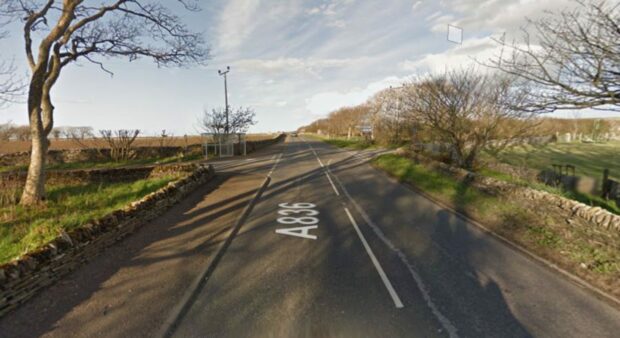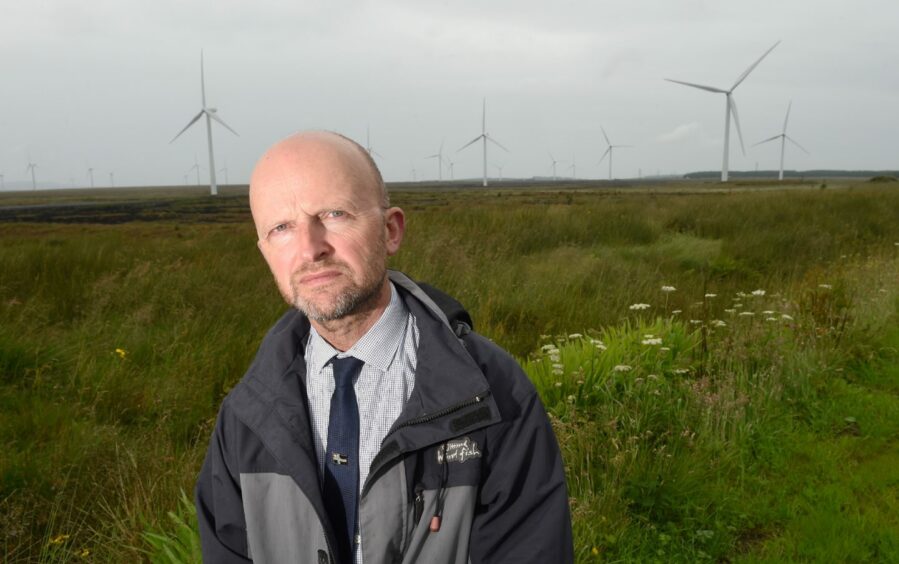Community leaders in Caithness have come together to demand safety improvements on the A836 at Forss village.
Campaigners say the areas, known locally as the Forss straight and the Forss bridge bends, are an accident blackspot, with several collisions in the past decade.
They are calling on Highland Council and Transport Scotland to introduce measures including a reduced speed limit, traffic calming and white lining.
Additionally, they want police to deploy a speed camera van to act as a deterrent to speeding motorists.
The campaign group includes representatives of Caithness Roads Recovery, Thurso Community Council and Caithness West Community Council.
Increased tourism traffic
In a joint letter sent by Iain Gregory of Caithness Roads Recovery, the group refers to a “very substantial rise” in tourist traffic on the NC500 coupled with local traffic from windfarms, logging and Dounreay.
They say the busy and fast stretch of road puts local residents and motorists at risk.
In particular, the stretch of road leading from Thurso towards Reay, has become “particularly dangerous.”
The group includes Highland Council data which shows two fatal collisions and one additional road traffic accident on the Forss straight since 2012.
However, they say that local knowledge suggests a higher number, with eight people thought that to have lost their lives around that area in the past decade.
Councillor Matthew Reiss, who represents Thurso and west Caithness, says that the local group may be looking at a larger area than official council figures and more investigation is needed to get to the exact figures.
Nevertheless, he agrees it’s a dangerous stretch of road that is long overdue for action.
“The bottom line is, the figures show there have been serious accidents at Forss and we should do as much as we can before there is another,” he says.
In fact, Mr Reiss says his very first task on his election to council in 2013 was to take receipt of a petition that had been presented to then MP John Thurso.
Mr Gregory says the petition reflected “strong public concern”, with 124 signatures calling for a 40mph speed limit.
“It appears – for reasons unknown – that no action was taken,” says Mr Gregory.
“The opinions of the residents are even more valid today.”
Speed enforcement system is ‘absurd’
Mr Reiss says elected members tried many times to secure improvements, without success.
However, there has been a recent breakthrough.
Speed camera data from 2009 shows that 24% of all eastbound traffic and 30% of westbound traffic was speeding.
Each day, 66 westbound vehicles exceeded 70mph and seven went faster than 80mph.
Unfortunately, Transport Scotland uses what Mr Reiss calls an “absurd” points system to decide where to deploy its speed vans.
A site will only be considered for speed enforcement if it scores nine points per kilometre of road – with a fatal collision attracting 7.1 points, 4.5 for a serious collision and one point for every slight collision.
However, Mr Reiss says Transport Scotland has now agreed to start speeding enforcement ‘imminently’ at Forss.
“It’s unexpected but welcome news,” he said.
In the meantime, campaigners want Highland Council and Transport Scotland to introduce a 40mph or 50mph limit permanently. This should be accompanied by traffic calming measures, white lining and safety measures for pedestrians.
“There is no doubt that an issue exists,” writes Mr Gregory.
“There is also no doubt that it is comparatively easy to put solutions in place.”


